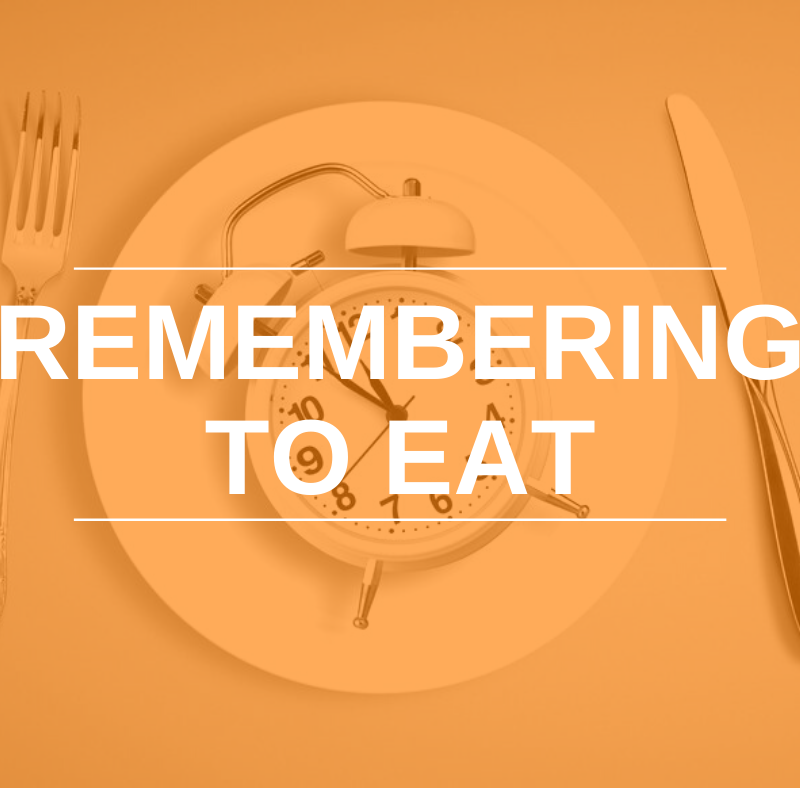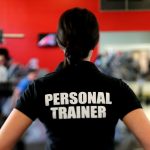
Personal trainers and clients alike can get so caught up in their workday that remembering to eat their meals at optimal intervals may pose a unique challenge. How many times have you gotten so focused on your job that you forget to eat? Intense focus coupled with stress hormones and a slowed metabolism can keep hunger pangs at bay and before you know it the clock says 3 pm and lunch has been skipped.
If you have clients with goals aligned with weight loss, better nutrition, or perhaps just improving consistency, waiting until the clock strikes 3 pm, 4 pm, or even 5 pm can sabotage those earnest efforts!
Why Meals Get Skipped
Here are some common excuses you may hear from your clients justifying skipped meals:
*I’m not hungry.
*I only eat once a day.
*I don’t need the extra calories.
*I get sleepy after I eat.
*I don’t have anything prepared.
The list can go on and excuses are plentiful. What if changing lanes and acknowledging then redirecting the thoughts and habits that are holding our clients back from success, could help raise mindfulness and restore balanced meal times on a busy day?
Remembering to Eat Starts With Preparation
Being properly prepared does not leave much room for compromise. One of the reasons clients find themselves in the above situation is due mainly to a lack of preparation. Daily to-do’s often become long lists of what may be more urgent tasks, forcing food preparation to take a back seat.
How does one prepare for meals? Just like a work calendar has scheduled meeting times, so can meal prep time. Advise your clients to put food preparation on their calendar. They can start by carving out an hour and as time goes on, the preparations may take less than needed initially; that hour may turn into 45 or even 30 minutes, especially if armed with thoughtful meal planning hacks.
Make decisions ahead of time about what these meals/snacks look like and prepare accordingly. Pinterest is a great resource for quick ideas or food prep or recipe app.
Some folks might like the idea of taking one day a week to do meal prep for the entire week. If that’s too overwhelming for someone, encourage small steps such as preparing the night before for the next day’s meals. Taking the steps to prepare ahead in some fashion is one step closer to success.
For some who have the financial meal, having low-calorie meals delivered by food-prep services is yet another option.
I’m just not hungry!
Clients may tell you they don’t actually have trouble remembering to eat, but that they just aren’t hungry and so they don’t! The human body is a very smart machine, it will slow down without fuel to conserve energy for when it’s needed. Just like a car cannot be driven without gas for long, nor can the body function optimally without food. This is why the “E” comes on to remind us that the wheels are about to stop going round and round.
Eating–whether it’s three full meals or six small snacks in a day–will help to re-establish an active metabolism and diminish the symptoms associated with a sluggish one. It’s like weight loss, satiety, and feeling good almost magically happens. (Of course we know it’s not magic, it’s just physiology!) Signs that it is time to eat vary from person to person but if focus is lacking, the stomach is grumbling, or it is 3 pm and there has been no fuel, then it is time to eat!
Post-Meal Drowsiness & Hydration
Let’s discuss hydration here before addressing nutrition. Fatigue and brain fog are definitely related to dehydration. Being prepared with water is just as important as food preparation. Encourage clients to invest in a reusable water bottle if they don’t already have one and to sip throughout the day. The goal should be to drink half of one’s body weight in ounces a day!
Choose foods that are whole foods, high in water content, hitting two birds with one stone, providing nutrients and hydration…a win-win! A few easy-to-prepare options are apples, grapes, oranges, pineapple, watermelon, celery, cucumbers, tomatoes, sweet potatoes…there are so many healthy options that can be included in the planning and preparation phase!
Bear in mind that post-meal sleepiness (and pre-meal grumpiness) may also be a sign of hypoglycemia, so if this isn’t resolved by hydrating properly, refer your client to a medical provider.
Making the Change
Not everyone is ready to make changes necessary for lasting weight loss, of which, remembering to eat is an integral component for overall health. And while it is wonderful to be happy in the skin we are in, prioritizing such lifestyle changes for the sake of good health should always be the primary focus.
Just getting started can be overwhelming for many. As a fit pro, you are there to help guide and coach your clients not only by relaying information, but by helping them to be inspired and motivated to make these changes. Have them Start by committing to the process, and help them get into the habit of planning and following through by holding them accountable.
If getting up early and home late is the norm perhaps six small snacks throughout the day works better than three square meals. If there is a time crunch and three meals spread out works better, encourage that. There is a way to make progress and progress leads to success, especially in small steps. They can turn that first meal at 3 pm into the first meal by 8 am and work from there. The energy increase alone they should experience will make it a habit worth creating!
About the Author
 Keleigh Hall is an NFPT Certified Personal Trainer, Fitness Nutrition Specialist and holds an additional certificate in Core training. She has over 20 years of experience in the fitness industry to include speciality training as well with Total Gym/Gravity Group and one-on-one, Spartan Instructor training, TRX training and currently working on NASM Corrective Exercise Specialist certification. She has her Associates in Health and Fitness Education at Gulf Coast College/Business Management at University of Phoenix. Keleigh is also Founder/Owner of Hallway Fitness!
Keleigh Hall is an NFPT Certified Personal Trainer, Fitness Nutrition Specialist and holds an additional certificate in Core training. She has over 20 years of experience in the fitness industry to include speciality training as well with Total Gym/Gravity Group and one-on-one, Spartan Instructor training, TRX training and currently working on NASM Corrective Exercise Specialist certification. She has her Associates in Health and Fitness Education at Gulf Coast College/Business Management at University of Phoenix. Keleigh is also Founder/Owner of Hallway Fitness!







